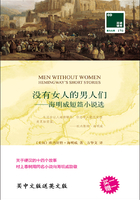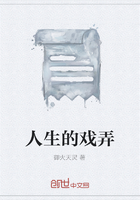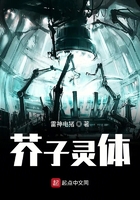Harvest Moon
肯尼斯·L.皮尔庞特 / Kenneth L. Pierpont
My grandfather had a small farm where he raised beef and some grain for feed. He also worked diligently as a factory laborer and country pastor. He was a good neighbor and well respected for honoring his word.
When harvest-time came, he’d piece together his old one-row corn picker and oil it up for the season. He pulled it behind a little Ford tractor with a wagon hooked on the back. It was a noisy contraption unlike the modem machines you see these days devouring the golden armies of grain in wide gulps. His whole operation was like that. Basic. In fact, his life was like that, too. He worked hard, helped others and you could count on him to keep his promises. That’s what made it so hard one autumn when difficult circumstances closed in on him.
He had promised to harvest a few ribbons of corn that wound around the hills on a friend’s farm, but after harvesting his own corn, Grandpa’s little corn picker coughed, sputtered and quit. It would be out of commission until a particular part could be ordered, but that would take far too long to help this year. Then the odds of being able to help out his neighbor got even worse; the factory where grandpa worked began to require overtime. In order to keep his job there he had to leave the farm before dawn and didn’t get home until well after sunset.
One autumn night, while harvest time was running out, he and his wife sat at the kitchen table sipping bitter black coffee trying to figure a way out of their dilemma.
“There’s nothing you can do,” said my grandma, “You’ll just have to tell him that you can’t help with the corn this year.”
“Well that just doesn’t sit well with me,” said my grandpa, “My friend is depending on me. I can’t exactly let my neighbor’s harvest rot in the field, can I?”
“If you don’t have the equipment, you just can’t do it,” she said.
“Well, I could do it the way we used to do it. I could harvest it by hand,” he said.
“When do you think you’d have time to do it?” she asked, “With the overtime you’ve been working you’d be up all night -besides it’d be too dark.”
“I know one night that I could do it!” he said running to the bookshelf. He grabbed the Farmer’s Almanac and started flipping through the pages until he found what he was looking for.
“Aha! There’s still one more full moon in October.” As it happened, the harvest moon had yet to pass. They say it’s called the harvest moon because it gives farmers more light and more time to collect their crops. “If the Lord gives us clear weather, I think I can do it.” he said.
And so a few days later, after a long shift at the factory, my grandpa made his way to the field where my grandma met him in the truck with dinner and a steaming thermos of strong, black coffee. The weather was cold but clear, and the moon was brilliant. He worked through the night to keep his word.
I know this story well, because I’ve spent hours on that old tractor’s fender talking with my grandpa. We’ve even suffered through some of that same bitter coffee together. I’m proud to say that my parents named me after him.
Sometimes, when I’m tempted to cut corners or to put off responsibilities, I think of my grandfather with his scythe cutting wide arcs of corn in the light of the harvest moon. I hear the ears of corn hit the floor of the wagon and the music of geese crossing the cold October sky. The chill autumn morning darkness envelopes my mind and I see my grandpa, his work finally done, crawling into the seat of the old tractor and making his way home. Behind him in the pale moonlight, row alter row of corn shocks stand at attention in respect for a man who keeps his word.
爷爷有一个小农场,他在那里养牛,还种了一些谷物。另外,他一直在一家工厂上班,同时又兼任乡村的牧师。他与邻居关系融洽,并因为信守承诺而受人尊敬。
当收割月来临时,他就把那台老式单排玉米收割机组装起来,上好润滑油,用一台小型福特牌拖拉机拖着它,一个货斗挂在后面。这是一个嘈杂的装置,不像你看见的现代设备那样,用宽阔的齿轮迅速地收割金黄的大片庄稼。他的所有工作都这样平常。事实上,他的生活也是如此。他努力工作,经常帮助他人,而且遵守承诺,值得信任。有一年秋天,这些品质让他的处境变得异常艰难。
他答应帮一个朋友收割他山坡上的一片玉米地,但收割完自己的以后,那台小收割机就喘个不停,轰隆作响,还熄了火。必须订购一个零件,才能让它正常工作,但这会耗费很多时间,赶不上这季的收割了。后来,爷爷工作的工厂开始要求加班,这样看来,帮邻居收割玉米更不可能了。为了继续工作,他天还没亮就得离开农场,直到晚上很晚才回来。
秋天的一个晚上,那时,收割月很快就要结束了,他和奶奶坐在厨房里的桌子旁,喝着苦咖啡,商量怎样解决这个进退两难的问题。
“你实在是无能为力了,”奶奶说,“你只能告诉他,你今年不能帮他收割玉米了。”
“我不能那样做,”爷爷说,“朋友现在全靠我了,我不能让他的玉米在地里腐烂,我怎么能这样呢?”
“可如果没有设备,你也做不到啊。”她说。
“哦,可以用以前的方法,我可以用手收割。”他说。
“那你认为什么时候能有时间呢?”奶奶问,“工厂要加班,你就只能晚上收割……但晚上太黑了。”
“我知道有一个晚上,我可以去做!”他说着,冲向书架,抓起《农家日历》,飞快地翻了起来,最后终于发现要找的东西。
“啊,十月还有一天是满月。收割月刚好还没有过。”书上说,因为这个月还能给农民更多的亮光和时间来收割庄稼,所以才叫做“收割月”。“如果上帝赐给我们一个好天气,我想,我能做到。”他说。
于是,几天过后,爷爷在工厂忙了一天后,又来到了玉米地。奶奶带着晚餐和一壶热腾腾的苦咖啡在卡车里等他。天气很冷,但很明朗,月光四溢。他干了一整夜,完成了朋友的工作。
我很清楚这个故事的来龙去脉,因为,我那天站在那台老拖拉机的挡泥板上,和爷爷聊了很长一段时间,我们甚至一起享用了那壶苦咖啡。我为父母用爷爷的名字给我取名而甚感自豪。
有时候,当我试图抄近路,或者逃避责任时,就会想起爷爷,他拿着大镰刀在明亮的月光下收割大片的玉米。我听见玉米撞击卡车拖斗的声音,还有野天鹅掠过十月阴冷的天空发出咕咕的叫声。我的脑海里还弥漫着秋天清晨的暗淡和寒意。终于,爷爷干完了,我看见他爬进那辆老拖拉机,在位子上坐好,然后开车回家。在他身后,一排排的玉米秆在苍白的月光中肃然挺立,似乎是在向这位信守承诺的人表示敬意。
记忆填空
1. When harvest-time , he’d piece together his old one-row corn picker and oil it up for the season. He pulled it a little Ford tractor with a wagon hooked on the . It was a noisy contraption the modem machines you see these days devouring the golden armies of grain in gulps.
2. I know this story , because I’ve spent hours on that old tractor’s fender with my grandpa. We’ve even suffered through of that same bitter coffee together. I’m proud to say that my named me after him.
佳句翻译
1. 他努力工作,经常帮助他人,而且遵守承诺,值得信任。
2. 天气很冷,但很明朗,月光四溢。
3. 有时候,当我试图抄近路,或者逃避责任时,就会想起爷爷,他拿着大镰刀在明亮的月光下收割大片的玉米地。
短语应用
1. He worked hard, helped others and you could count on him to keep his promises.
count on:指望;依靠
2. One autumn night, while harvest time was running out...
run out:用完;耗尽;跑出;到期;伸向














